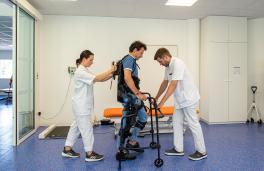Innovation
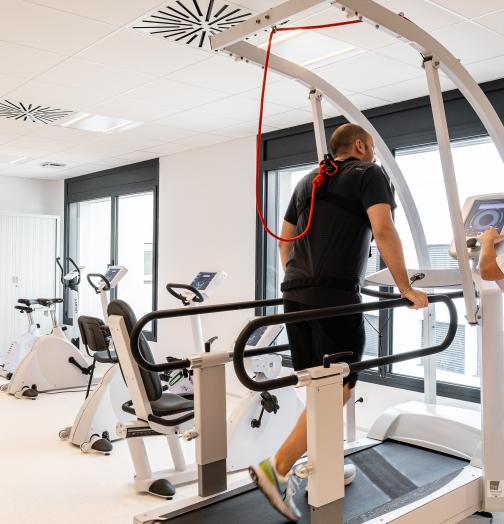
Encourage and enhance innovation to help better prevent illnesses, increase the effectiveness of treatments and enhance the quality of life and satisfaction of patients, residents, families, employees and other stakeholders.
Medical research
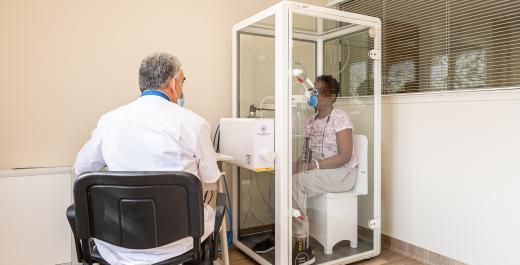
Develop research partnerships on a European scale leveraging Clariane’s network and data, and stimulate knowledge sharing within our medical communities and the applications of medical research in our facilities.
As part of this initiative, the Group’s priorities are to:
- continue to develop its position as a partner of researchers by allowing the research projects to which the Group contributes to benefit from the size and diversity of its network of facilities as a field for experimentation and data collection;
- promote the European medical community and to foster exchanges between countries;
- implement Europe-wide projects to apply the knowledge acquired through research across facilities.
In 2023:
- 82 scientific communications were produced in relation to the research projects to which the Group contributes, including 31 scientific articles published in indexed journals;
- the Group has set up five research partnerships on key topics (geriatric healthcare, rehabilitation, mental health) each involving several countries.
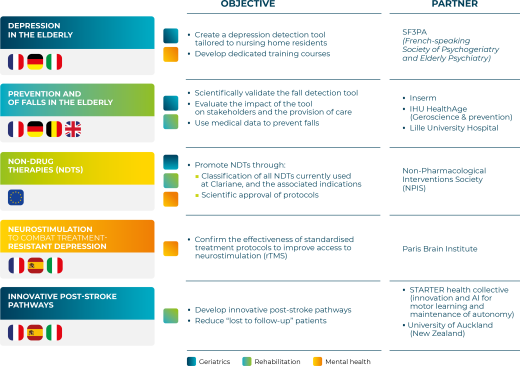
Innovation in healthcare and care
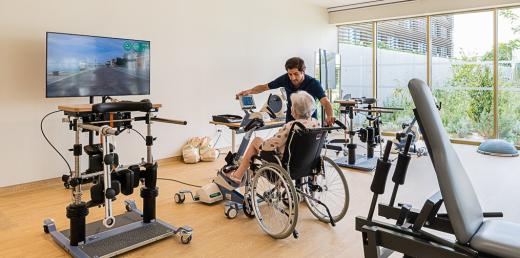
Deploy and scale up new medical and care practices, new organisational models and new offers and services in order to meet changing societal needs and improve the quality of life of our residents/patients, families and employees.
In 2023, numerous innovation projects were in progress at various stages across the Group’s countries and activities. They are supported in particular by the medical departments (Group and country) and the digital innovation department, which run innovation identification and incubation systems.
Among the main innovation projects carried out by the Group in 2023 are:
- the development of the Koala application, intended for employees at facilities and designed to simplify daily and administrative tasks in order to improve quality of life at work for employees and allow them to spend the time saved with residents/patients;
- the continued deployment of fall prevention and detection devices in nursing homes:
- the continued deployment of non-pharmaceutical interventions in nursing homes and clinics. In addition to the tools selected by the Group as part of the Positive Care approach in nursing homes (see 3.1.1), virtual reality can be used in many situations and is increasingly used in particular in mental health clinics.

